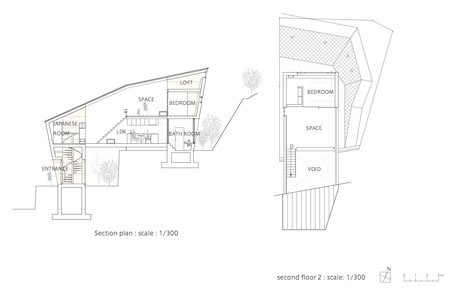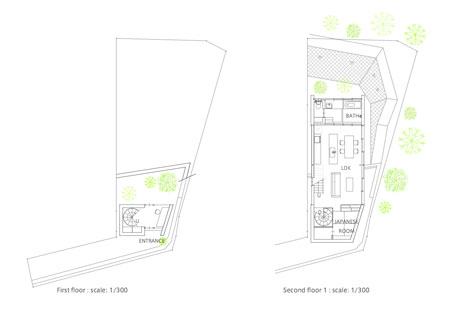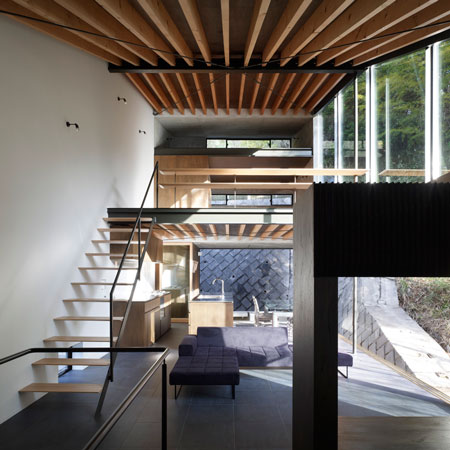
House in Kamakura by Suppose Design Office
Japanese architects Suppose Design Office have completed a house in Kamakura, Japan, which consists of a steel frame constructed between two concrete shafts.

The residence is built directly on an uneven plot of land, and the design aims to overcome the expected structural issues.
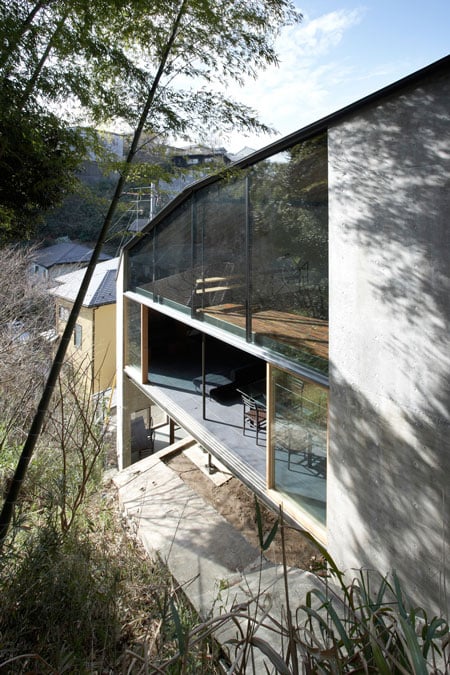
The concrete shafts are installed in the ground at different levels, slightly distanced from the retaining wall.
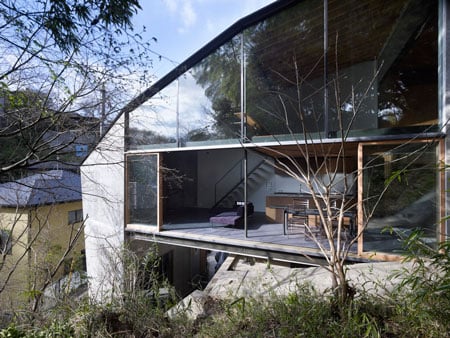
This design and method of construction enabled the architects to keep excavation work to a minimum, a time consuming process usually essential when building on uneven land.
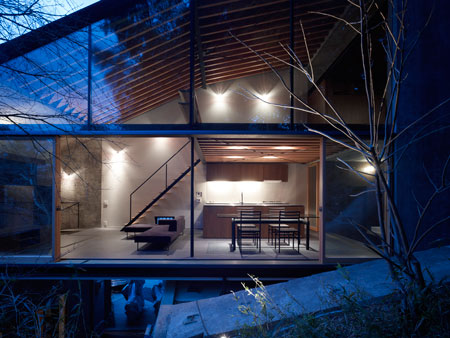
The void between the entrance in the lower shaft and the next level of the stepped site is used as a private garden.
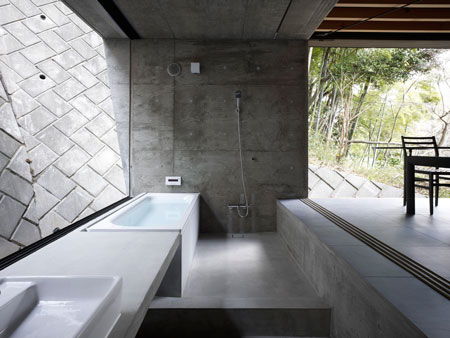
Here are further details from Suppose Design Office:
--
House in Kitakamakura
Among the plots of land for sale in Kita Kamakura there are some sites in the outskirts which at first glance have the negative condition of being uneven.
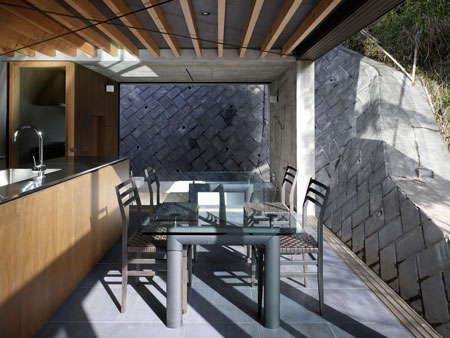
This is a plan to create an appealing living space by building directly over that uneven land.
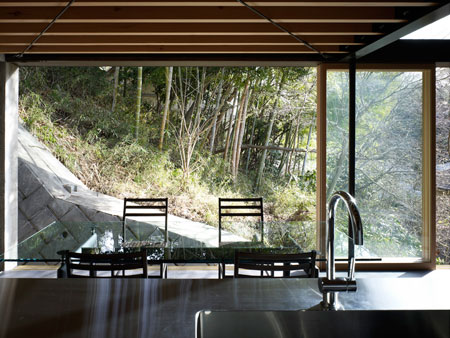
From an architectural standpoint, with an upper and lower level, the influence of the footing and other aspects cause too many uncertainties in the support of the retaining wall.
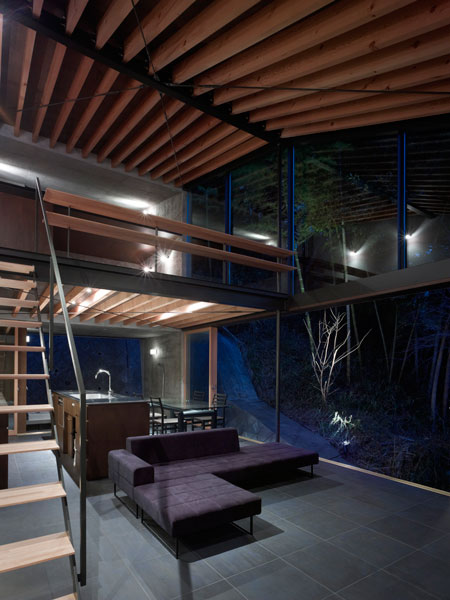
So, we propose to set concrete shafts slightly away from the wall and create a steel frame between the shafts in order to insure the safety of the living space and the site at the same time.
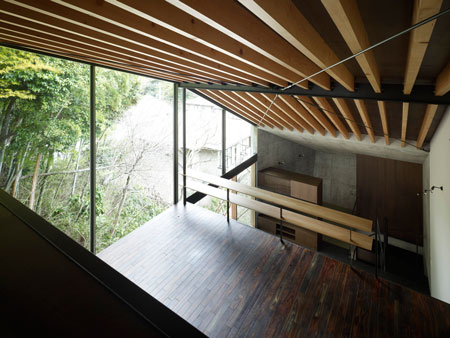
This also helps to keep the excavation which accompanies construction work on uneven sites to a minimum.
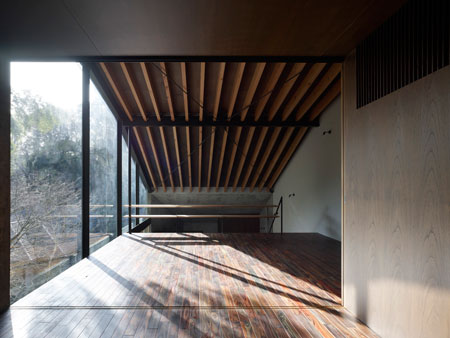
In addition, the space between the two levels which is created by the shafts and the retaining wall can be used as a garden.
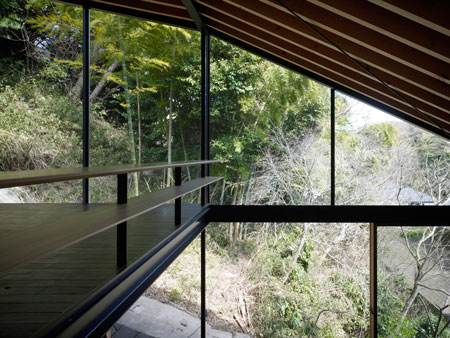
Many kinds of natural spaces can be created, such as a Japanese Garden, Bath Terrace, or Green Garden.
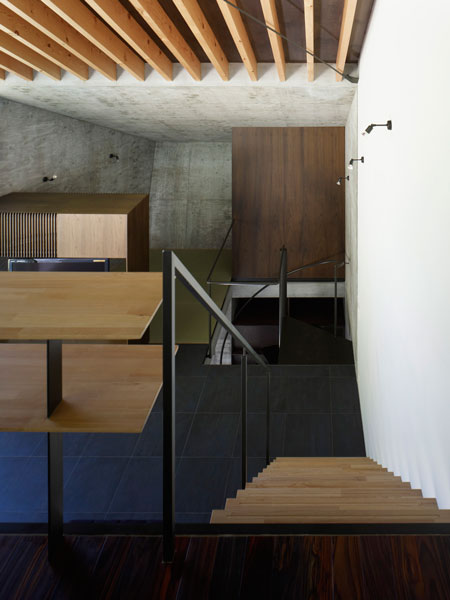
The concrete will create a quiet, enclosed space, while an open space is created by the steel framework.
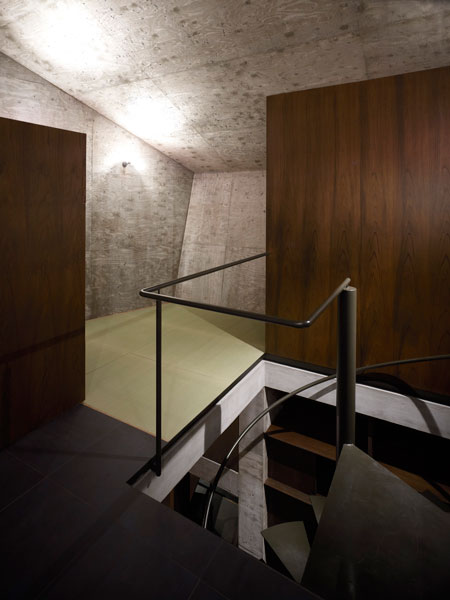
Through these two structural forms you can feel connected to the surrounding nature in this wonderful living space.
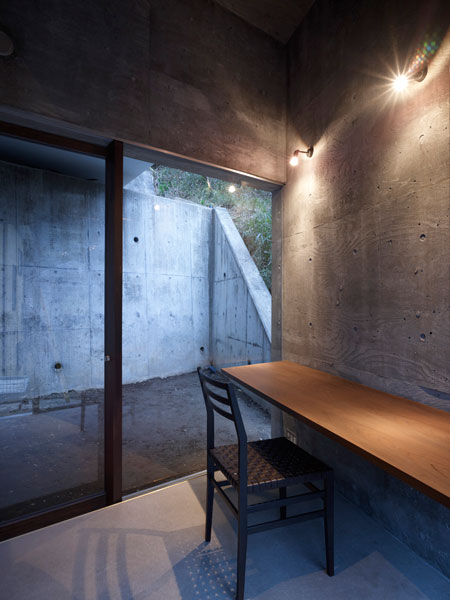
With just a few techniques we can overturn the stereotypes associated with this type of site.
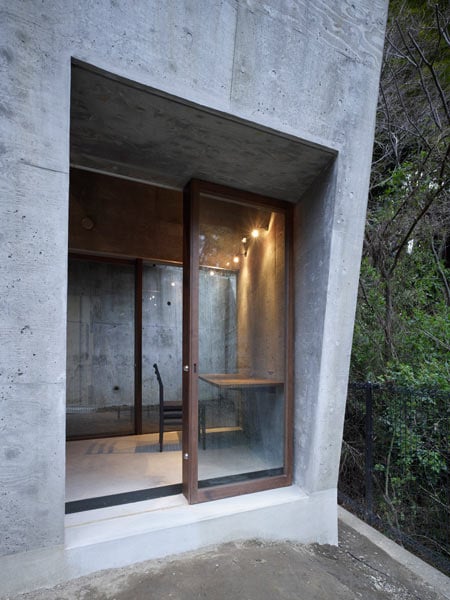
What was once viewed as a site with poor building conditions can be changed into land with great possibilities.
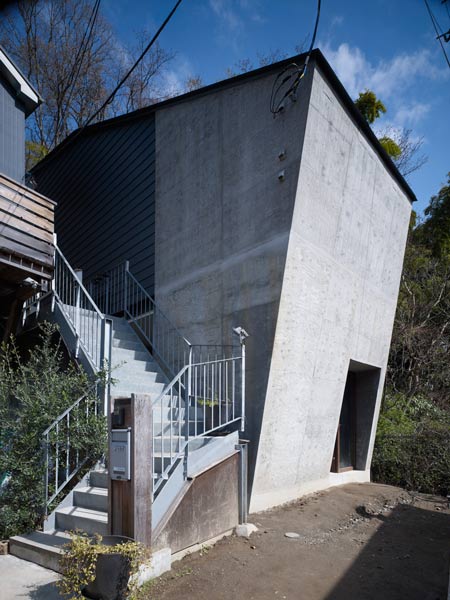
Rather than looking at the negative side, we would like to continue searching for these possibilities by accepting all that these sites have to offer.
